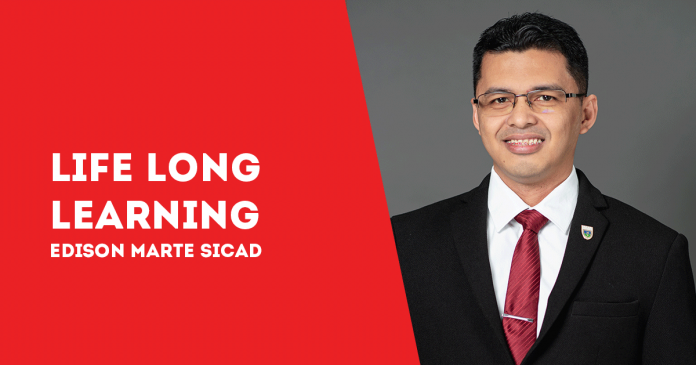
BY EDISON MARTE SICAD
“The root cause of corruption then is not the elected official, but the Filipino voter”.
THE MOST visible representation of leadership, authority, or social responsibility is seen in our public officials. But some constituents look up to them not as people in service but as people in power.
We somehow know, in hindsight (just to be polite), that rarely do politicians run for public office with Public Service as the priority and dominant goal. As an analogy, some businessmen donate money not essentially as an act of utmost generosity, but more so as a tax deduction/avoidance strategy—and making sure that such benevolence must be recognized by a media blitz (People must know how selflessly generous they are).
To be simplistic about it, we are paying them to serve us. In other words, the money they give to us is also our very own money. We employed (elected) these politicians to build our roads, protect our lives, and lead us into progress. In fact, these services are derisively known as “campaign promises.”
Our votes gave them the power to serve us, not exploit us. Sadly, our democratic process relegated us into bottom feeders. We have normalized their impunity and accepted poverty, among others, as a self-induced social crisis. To follow the logic of a trending politician, “We are not poor, because we are poor. We are poor because our elected officials are rich.”
Money was, is, and will still be the currency—the controlling factor—of a democratic society unless we, the people, choose and do what is right from the very beginning: principled electorate and delicadeza in serving the people.
The most democratic element of an independent state—and educated citizenry—is manifested in the choices and decisions of the electorate. But some voters act not with competence and integrity, but with partisan loyalty.
It could be possible then that when people, in a democratic society, criticize a public official, they are actually criticizing their own actions. If so, it means then that when netizens make fun of an elected official, we are making fun of those who voted the politician.
We somehow consider our “witty” memes as proper representation of civic consciousness. But in reality (paraphrasing a song), the joke is on us. The politicians are truly those who are enjoying their laughter. For we laugh at them to give ourselves a false sense of active political participation—when such humor only magnifies our political immaturity. And our elected officials? They laugh (as one) as they skip walk (hand in hand in unity) all the way to the bank, so to speak.
The root cause of corruption then is not the elected official, but the Filipino voter.
To eventually veer from the negative connotation of the word Politician, we need to have a different word to those who are really in public office for public service: a Statesman. Unfortunately, most of them will lose in an election because the voters prefer money to fill their pockets and not ideals to fill their minds. Again, good people do not run because they don’t want to run. They do not run because the people do not want a leader; they want a financer.
I may sound to be totally negative about public officials bereft of any principle. But there is one who inspired me the most: former Senator Jovito Salonga. He has a book entitled Ethics in Politics (where I got the title for this series). There are, in truth, some politicians worthy of emulation like Salonga: public officials like Diokno, Tañada, and Manglapus, were truly leaders to the point of being heroic.
I am mentioning these people not entirely in relation to a political life; but as a compass in guiding my way of life as a teacher. These statesmen were governed by their ideals and principles that gave them the passion and energy to serve the people despite the incompetence and lack of integrity of some politicians.
In teaching, a teacher can also be buried in paperwork and activities that have nothing to do with learning: jaded by institutional requirements; disappointed by the “merit system;” and attracted by the promises of working abroad. But like Jovito Salonga (who lost a presidential election for being “too honest”), we just have to remain strong and steadfast in our goal in teaching: to have an educated citizenry.
For the classroom is the microcosm of society. Thus, it becomes more relevant to give importance in teaching (and modeling) character formation. We do not want to create “intellectual barbarians:” where knowledge can really become powerful in the pursuit of selfish gains. Students must learn how to become a Man of Service: where words and deeds are in coherence for the common good.
IN CLOSING, public service then or self-interest can begin in the classroom, which paves the way towards love of country (or another country). And teachers have the opportunity to influence and shape this ‘imagined community” (as Benedict Anderson would say). In essence, the teachers are truly leaders to the point of being heroic. For their service (just like Jovito Salonga) is done out of passion and not just as a preparation for the next election./PN

